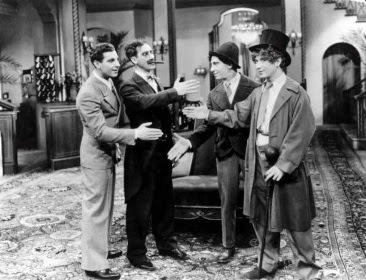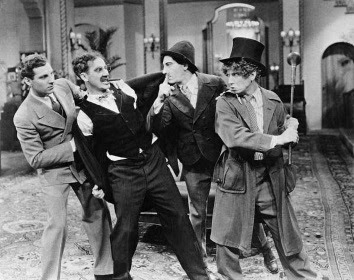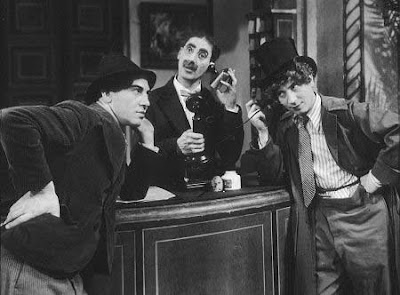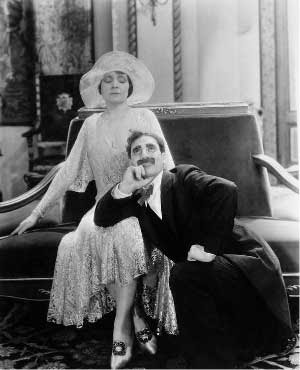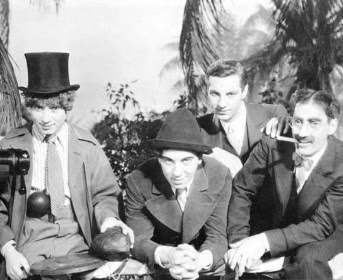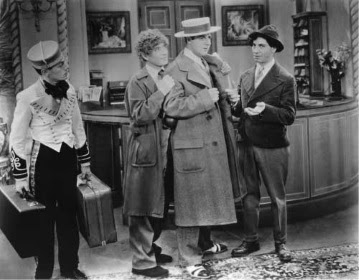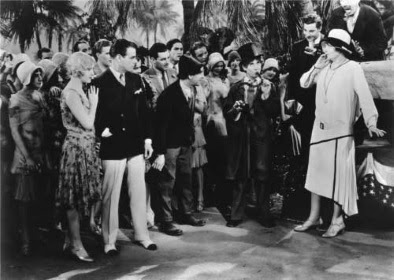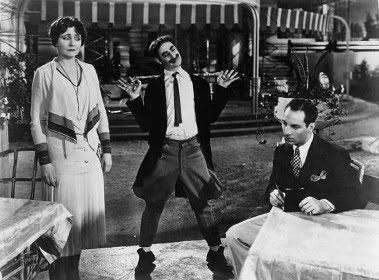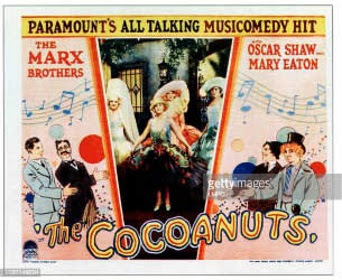The Cocoanuts
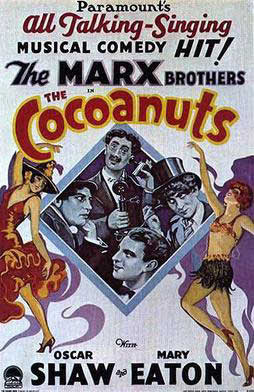
Director: Robert Florey/ Joseph Santley
Year: 1929
Rating: 7.5
At the beginning
of this film the hotel staff gathers around Groucho. The Bellboy “We haven’t
been paid in two weeks. We want our wages”. Groucho “Wages? Do you want to
be wage slaves? Answer me that.” “Of course not”. Groucho “Well what makes
wage slaves? Wages. I want you to be free. There is nothing like Liberty
except Colliers and the Saturday Evening Post”. And the satisfied bellboys
and bell girls break into a musical number.
